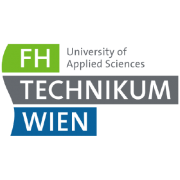Methodological Framework on Recognition and Equivalence of Formal, Non-Formal or Informal Professional Competences by Medical Assistants who did not attend university level education programs

This case study responds to a long-term issue in Romania, concerning the recognition of non-formal or informal professional competences, but with regard to a specific field. More exactly, in the past 25 years in Romania, there have been successive changes of the levels of initial education programs for nurses, in addition to the coexistence of different types of training programs for this profession: post-secondary schools, colleges and university programs. Thus, on the labor market, there are nurses with post-secondary education and nurses who graduated from university programs of short or long duration (3 or 4 years). They share the same job duties but receive different levels of pay as a consequence of different educational background.
Nevertheless, the main problem resides in the fact that in order to advance in their career, post-secondary trained nurses need to start the educational process again, with another form of initial education. Thus, there have been nurses that have been obliged to attend several forms of education in order to maintain their profession at the initial level. The total duration of education sometimes is longer than the duration for the training of a physician (STUDY: Echivalarea asistentelor medicale absolvente postliceală – formă de acțiune împotriva discriminării [Equivalence of medical assistants with post-secondary degrees], p. 56, in Some forms of health care employees discrimination; conceptual approaches and legal solutions, Good Practice Guide, Rotilă Viorel (coord.), Sodalitas, 2015).
It is estimated that over 50.000 medical assistants (including midwifes) did not attend a higher level
education program because during their professional training, such programs were not available.
The problem also relates to the conditions that the nurses must meet in order to perform
professional activities in another EU member state, as regulated by the Professional Qualifications Directive 2005/36/CE amended by the Directive 2013/55/EU.
The response to the aforementioned issues consisted in the EU-funded project Methodological framework on recognition and equivalence of formal, non-formal or informal professional competences by medical assistants who did not attend university level education programs POSDRU/155/1.2/S/141134. The beneficiaries of the project were the Ministry of Education and Research, and the National Institute of Infectious Diseases “Matei Balş” (as partener).
The goal of the project was to enhance competence-based higher education through the development of a methodological framework for the recognition of the prior professional competences in formal, non-formal and informal contexts by nurses who did not attend higher education. The specific objectives of the project include: 1. Promoting life-long learning and expanding learning opportunities through the creation and dissemination of a unitary national framework recognition of prior professional competences in formal, non-formal and informal contexts by nurses who did not attend higher education, with the end goal of increasing their employability and international mobility. 2. The creation of an e-learning system and the set up of a multimedia classroom for training purposes of the target group. 3. standardizing the curricula and the training design for the target group, and conducting technology assisted education.
The project, which had a duration of 18 months (04/01/2014 – 09/30/2015), has reached its objective, setting the framework for the recognition of the professional competences for potentially over 50.000 medical assistants who did not attend a university program.
The main results of the project include: a Guide of Good Practice, a methodological framework aiming at facilitating recognition and equivalence of professional competences, and interactive courses for health professionals.


